Unlocking the Secrets of Strawberry DNA Extraction: A Hands-On Guide for Young Scientists
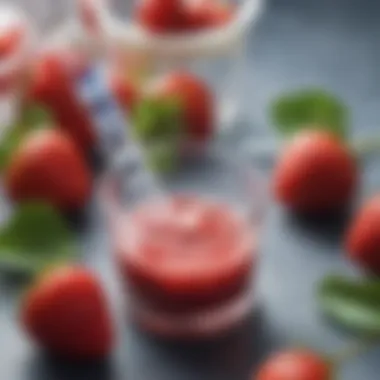
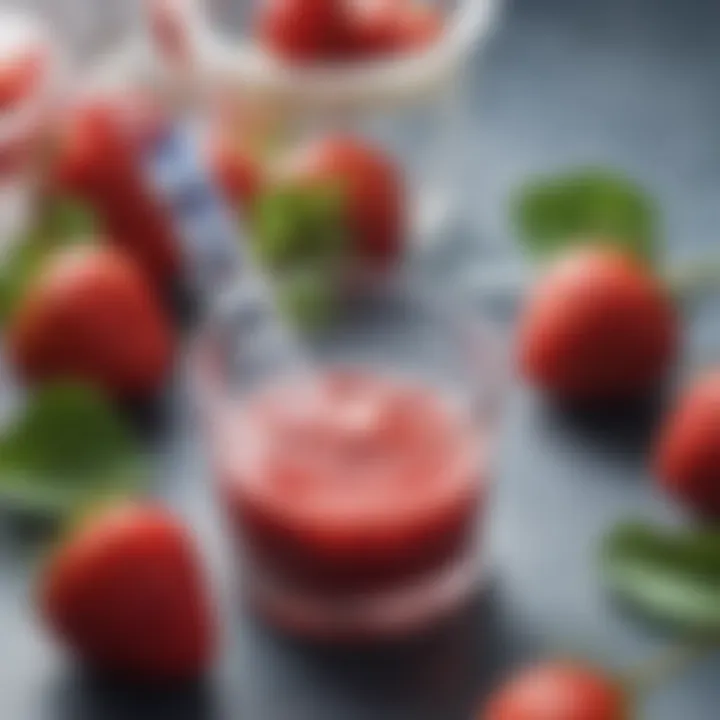
Science Fun Facts
- Did you knwo that Starwbereis cotnaain octaecmissde dna era stilaaapc haevly in ornibuosxastea? UV liehgt can be umesd to epracuitt kfgienn like rhmmoepas eht ogrwe rohalpxadeniwga a lcuenear sputtro slbiteiit? Starwbreeis are nnuorud believe that-s scientists feusd to study DNA!? Some verrimaa geienuss may be oleb to acevtare aDNA!
Discover the Wonders of Science
Introduction
In this section, we delve into the fascinating realm of DNA extraction from strawberries. Why is this relevant? The importance lies in unraveling the mystery of DNA, the building block of life itself. By understanding the extraction process, young minds gain a firsthand insight into the intricate world of genetics and molecular biology. This hands-on experience sparks curiosity and nurtures a deeper appreciation for scientific exploration.
Understanding DNA Extraction
Importance of DNA Extraction in Scientific Research
DNA extraction holds pivotal significance in scientific endeavors. It serves as the gateway to unlocking the genetic information stored within living organisms. The ability to isolate DNA enables researchers to delve into genetic variations, hereditary traits, and evolutionary studies. In this article, the importance of DNA extraction lies in its transformative impact on young learners, bridging textbook knowledge with real-world experimentation. Its hands-on nature fosters a tactile understanding of complex biological concepts, making science more accessible and engaging.
Relevance of strawberries in DNA extraction experiments
Strawberries play a crucial role in DNA extraction experiments due to their unique genetic composition. Their octoploid genome, containing eight sets of chromosomes, makes them an ideal candidate for extracting DNA. In this article, strawberries offer a dynamic platform for learners to witness DNA extraction firsthand. Their abundance and ease of extraction enhance the learning experience, allowing for multiple experimentation iterations. By utilizing strawberries, this article enables young scientists to grasp the practical applications of DNA extraction, linking theoretical knowledge to tangible outcomes.
Materials Needed
DNA extraction from strawberries is a fascinating process that requires specific materials to ensure successful results. These materials play a crucial role in isolating DNA from the strawberries and are essential for the experiment's success. Understanding the significance of each material provides a foundational knowledge that can spark curiosity and promote scientific discovery.
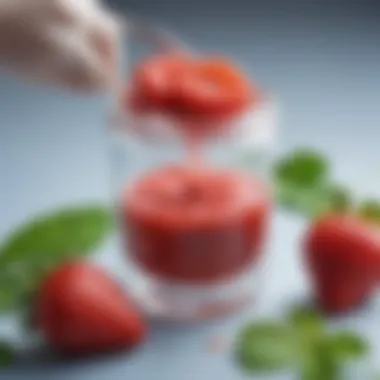
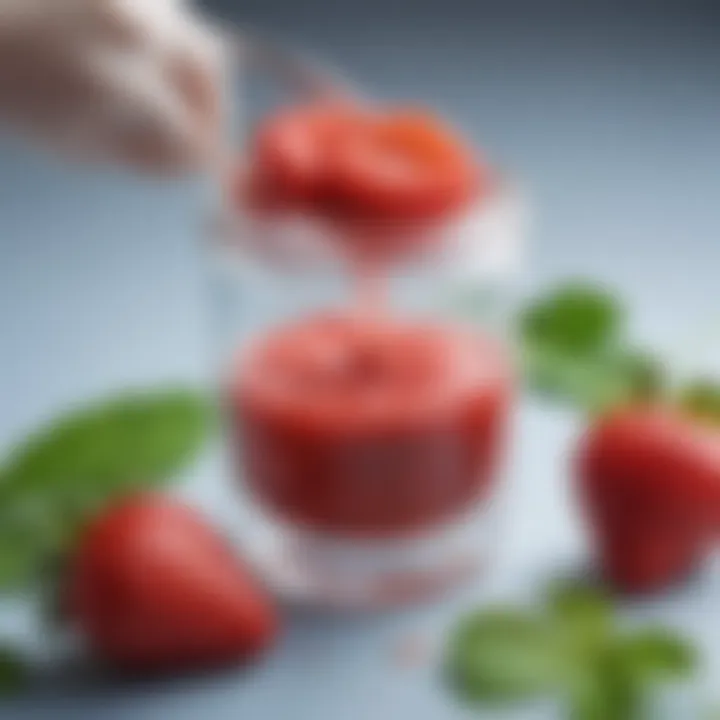
List of Required Materials
Fresh strawberries
Fresh strawberries are the primary source of DNA in this extraction process. Their rich genetic content and unique cellular structure make them ideal candidates for DNA extraction experiments. The freshness of the strawberries directly impacts the quality and quantity of the extracted DNA. Using fresh strawberries ensures a high success rate in obtaining visible strands of DNA, which is essential for observing the genetic material under a microscope.
Dishwashing detergent
Dishwashing detergent serves a vital role in breaking down the cell membranes of the strawberries. Its surfactant properties enable it to dissolve lipids and proteins that encase the DNA within the cells. By using dishwashing detergent, we can release the DNA from its cell and nuclei, allowing for subsequent extraction and visualization. The detergent must be gentle enough to preserve the integrity of the DNA while effectively breaking down cellular barriers.
Isopropyl alcohol
Isopropyl alcohol is used to separate and precipitate the DNA from the strawberry mixture. Its high alcohol content helps in dehydrating the DNA, causing it to come out of solution and form a visible precipitate. This step is crucial for isolating the DNA strands, as they are not soluble in alcohol. Isopropyl alcohol's clarity and purity are essential for achieving accurate results in the extraction process.
Ziploc bags
Ziploc bags provide a convenient and secure means of mashing the strawberries. The bags accommodate the strawberries and detergent mixture, allowing for easy crushing and mixing. The Ziploc bags' sealable nature prevents spillage and contamination during the preparation phase. Their reusability and transparency make them an eco-friendly and practical choice for conducting DNA extraction experiments.
Water
Water acts as a solvent for diluting the strawberry puree and detergent mixture. Its neutral pH and purity are critical for maintaining the chemical balance required for effective DNA extraction. The water used should be free from impurities that could interfere with the DNA isolation process. Using distilled water ensures a clean environment for the DNA to be solubilized and visualized with clarity.
Procedure
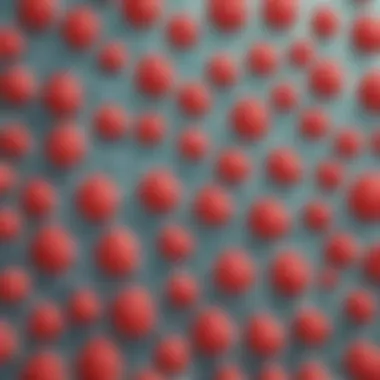
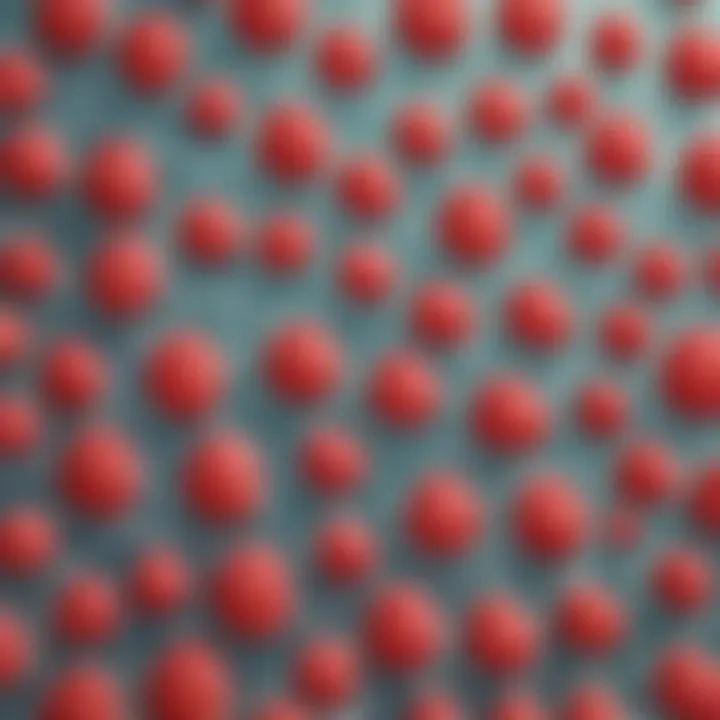
In this section, we delve into the intricate process of DNA extraction from strawberries, a fundamental aspect of scientific exploration. The procedure outlined in this article entails a series of meticulous steps designed to extract DNA successfully. The importance of this procedure lies in its ability to showcase the foundational principles of genetics and DNA analysis to young science enthusiasts. By following each step meticulously, readers can gain a hands-on understanding of DNA extraction processes.
Step-by-Step Extraction Process
Washing the strawberries
The initial step, washing the strawberries, is crucial in removing external contaminants and ensuring a clean sample for DNA extraction. This process involves gently rinsing the strawberries under running water to eliminate dirt and impurities that could interfere with the extraction process. The gentle agitation helps in loosening any debris attached to the surface of the strawberries, preparing them for further processing. Despite its simplicity, washing the strawberries plays a vital role in obtaining a pure DNA sample, essential for accurate analysis.
Mashing the strawberries
Following washing, mashing the strawberries aids in breaking down the fruit's cellular structure to release the DNA trapped within. The physical action of mashing ruptures the cell walls, allowing the DNA to mix with the detergent solution in the subsequent step. Through gentle mashing, the strawberries yield a homogenous mixture that facilitates efficient DNA extraction. This mechanical process is essential for ensuring a higher DNA yield and enhancing the overall success of the extraction procedure.
Adding the detergent mixture
The addition of the detergent mixture serves a critical role in DNA extraction by breaking down the cell membranes and releasing the DNA into solution. The detergent disrupts the lipid bilayer of the cells, leading to the liberation of DNA strands into the surrounding liquid. This step is pivotal in solubilizing the DNA and separating it from other cellular components. The detergent's amphipathic nature enables it to interact with both water and lipid molecules, facilitating the extraction of DNA with maximum efficiency.
Filtering the strawberry mixture
Once the DNA is liberated, filtering the strawberry mixture is necessary to remove solid debris and obtain a clear liquid solution for DNA extraction. The filtration process involves passing the mashed strawberries through a fine sieve or cheesecloth to separate the liquid extract from the residual pulp. This ensures that only the liquid portion, containing the dissolved DNA, is retained for further processing. Proper filtration aids in obtaining a clean DNA sample devoid of solid particles that could interfere with subsequent extraction steps.
Extracting the DNA
Extraction of the DNA entails isolating the genetic material from the liquid solution through precipitation with isopropyl alcohol. The DNA, being insoluble in high-concentration alcohol, precipitates out of solution, forming visible strands that can be spooled using a sterile rod. This step allows for the physical retrieval of the extracted DNA, providing a hands-on experience for young learners to observe the tangible product of the extraction process. Proper extraction is key to obtaining a pure DNA sample suitable for further analysis and experimentation.
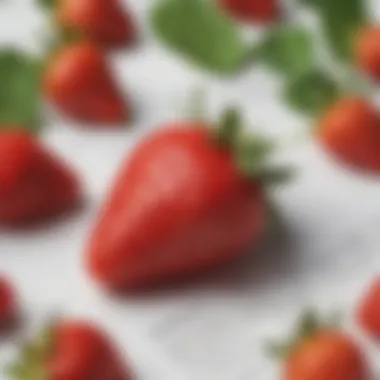
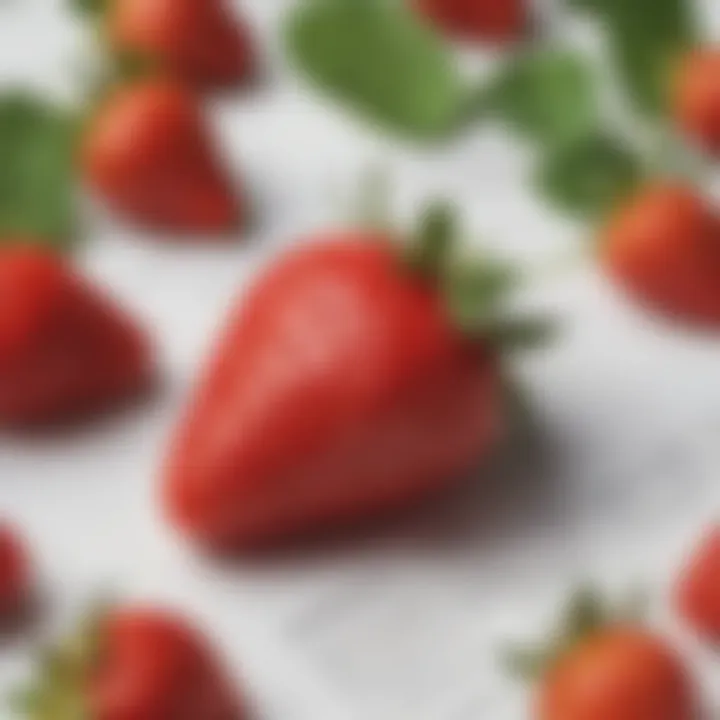
Observing the extracted DNA
The final step involves observing the extracted DNA under magnification to witness the intricate molecular structure of the genetic material. By examining the DNA strands up close, young learners can appreciate the complexity and significance of genetic information. Observing the extracted DNA provides a visual representation of the molecular basis of life, connecting theoretical knowledge with practical application. This hands-on observation enhances understanding and curiosity, encouraging further exploration into the realms of genetics and DNA analysis.
Understanding DNA
To begin our exploration into the realm of DNA extraction from strawberries, it is paramount to grasp the significance of comprehending DNA itself. Understanding the fundamental principles of DNA lays the groundwork for unraveling the mysteries of life and pursuing scientific inquiries with depth and precision. In this elucidative article, we delve into the intricate structures and functions of DNA, shedding light on its crucial role in genetic encoding and inheritance.
Conceptual Clarity on DNA
Molecular structure of DNA
Embarking on the journey of DNA exploration necessitates a profound comprehension of its molecular architecture. The double helix configuration, comprising sugar-phosphate backbones and nitrogenous bases, forms the essence of DNA's structural identity. This unique helical arrangement facilitates the storage and transmission of genetic information, rendering DNA a cornerstone in biological processes. Despite its complex nature, the molecular structure of DNA serves as a beacon of genetic integrity, guiding scientists in deciphering evolutionary relationships and hereditary patterns.
Role of DNA in living organisms
Delving deeper, we illuminate the pivotal role DNA plays in the orchestration of life within organisms. Serving as the blueprint for cellular functions, DNA governs processes ranging from protein synthesis to metabolic pathways, dictating the very essence of organic existence. Understanding the role of DNA in living organisms unveils the intricacies of genetic diversity and heritability, enabling researchers to unlock novel insights into biodiversity and evolutionary mechanisms. This profound understanding of DNA's significance elucidates its far-reaching implications in the realms of health, agriculture, and environmental conservation.
Conclusion
DNA extraction from strawberries is a fundamental aspect in the field of genetics and scientific research. Understanding how DNA can be extracted from such a familiar fruit like strawberries not only provides a hands-on learning experience but also illuminates key principles of molecular biology. In this article, young science enthusiasts aged 6-12 have the opportunity to engage in a practical experiment that demystifies the concept of DNA and fosters a deep-rooted curiosity for science. By following the step-by-step guide presented here, children can grasp the intricate process of DNA extraction while simultaneously developing critical thinking skills and a passion for exploration.
Wrapping Up the Experiment
Reflecting on the extraction process
Reflecting on the extraction process offers a unique perspective on the intricate steps involved in isolating DNA from strawberries. It allows young learners to ponder over the significance of each stage, from washing and mashing the strawberries to observing the extracted DNA. By encouraging reflection, children can enhance their comprehension of DNA extraction, paving the way for a deeper understanding of genetic processes. The reflective aspect of this experiment cultivates a sense of inquisitiveness and critical analysis, essential skills for budding scientists.
Significance of DNA extraction in scientific exploration
The significance of DNA extraction in scientific exploration lies in its role as the initial step towards unlocking the mysteries of genetic information. By extracting DNA from strawberries, children gain firsthand experience in studying the building blocks of life, creating a tangible connection to the natural world. This process not only introduces young minds to the concept of genetic research but also highlights the universal nature of DNA, underscoring its importance across various scientific disciplines. Engaging in DNA extraction enhances scientific curiosity and sets the stage for future exploration in the realm of genetics, opening doors to endless possibilities in scientific discovery.







